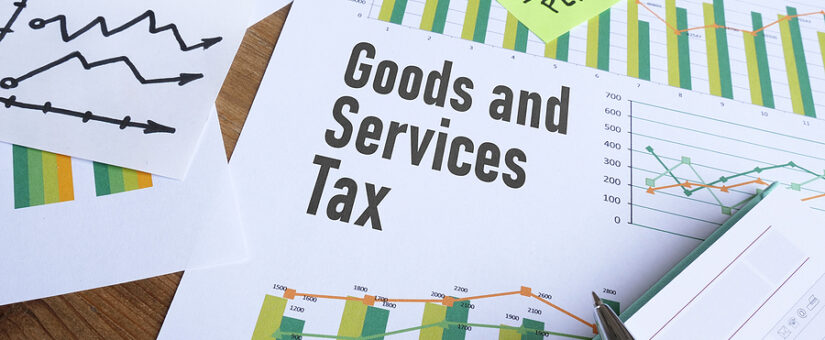
55th GST Council Updates
- Posted by admin
- On 12/24/2024
- 0 Comments
The 55th meeting of the GST Council, chaired by the Hon’ble Union Finance Minister, brought forth several important recommendations aimed at refining the GST framework and enhancing compliance. The key takeaways include:
Changes in GST Rates for Goods and Services
Goods:
- Reduction in GST rate for Fortified Rice Kernel (FRK) (HSN Code: 1904) to 5%.
- Exemption of GST on Gene therapy.
- Extension of IGST exemption to systems, sub-systems, equipment, parts, sub-parts, tools, test equipment, and software intended for assembly/manufacture of the Long Range Surface to Air Missile (LRSAM) system under Notification 19/2019-Customs.
- Reduction in Compensation Cess to 0.1% on supplies to merchant exporters.
- IGST exemption for imports of all equipment and consumable samples by the Inspection Team of the International Atomic Energy Agency (IAEA), subject to specified conditions.
- Continuation of the concessional 5% GST rate on food inputs classified under HSN 19 or 21, when supplied for food preparations intended for free distribution to economically weaker sections under a government program, subject to existing conditions.
Services:
- Bringing the supply of sponsorship services by body corporates under the Forward Charge Mechanism.
- GST exemption on contributions made by general insurance companies from the third-party motor vehicle premiums to the Motor Vehicle Accident Fund, constituted under Section 164B of the Motor Vehicles Act, 1988, for compensating victims of road accidents, including hit-and-run cases.
- Modification of the definition of declared tariff and amend the definition of specified premises to link it with the actual value of supply of any accommodation unit provided by hotels. The GST rate on restaurant services in such hotels will be:
- 18% with ITC, if the value of supply exceeded Rs. 7,500 for any unit of accommodation in the preceding financial year.
- 5% without ITC, otherwise.
- Hotels may opt to pay tax on restaurant services at 18% with ITC by declaring so before the start of the financial year or upon obtaining registration. These changes are effective from 01.04.2025 to ensure smooth transitions.
- Exclusion of taxpayers registered under the composition levy scheme from the reverse charge mechanism for renting commercial/immovable property (other than residential dwellings) by unregistered persons to registered persons, as introduced in Notification No. 09/2024-CTR dated 08.10.2024. The period from 10.10.2024 to the issuance of the proposed notification will be regularized on an “as-is-where-is” basis.
Other Changes Relating to Goods and Services
1. Increase in GST Rate on Used Vehicles:
- GST rate increased from 12% to 18% on the sale of all old and used vehicles, including EVs, except for specified categories covered under 18%, such as:
- Petrol vehicles with engine capacity ≥1200 cc and length ≥4000 mm.
- Diesel vehicles with engine capacity ≥1500 cc and length ≥4000 mm.
- SUVs.
- GST applies only to the margin of the supplier (difference between purchase price and selling price, considering depreciation if claimed). Not applicable to unregistered persons.
2. Classification of Autoclaved Aerated Concrete (ACC) Blocks:
- ACC blocks with more than 50% fly ash content would fall under HS 6815 and attract 12% GST.
3. Clarification on Agricultural Produce:
- Pepper (fresh green or dried) and raisins supplied by an agriculturist are not liable for GST.
4. Amendment in Definition of ‘Pre-Packaged and Labelled’:
- Definition expanded to include commodities intended for retail sale, weighing ≤25 kg or ≤25 litres, and requiring declarations under the Legal Metrology Act.
5. Classification of Ready-to-Eat Popcorn:
- Popcorn with salt and spices:
- 5% GST for non-pre-packaged and labelled.
- 12% GST for pre-packaged and labelled.
- Popcorn with sugar (e.g., caramel popcorn):
- Classified under HS 1704 90 90 and attracts 18% GST.
- Regularization of past issues on an “as is where is” basis.
6. Clarification on Compensation Cess Notification:
- Explanation in Sl. No. 52B of notification No. 1/2017-Compensation Cess (Rate) regarding ground clearance is effective from 26.07.2023.
7. Exemption for RBI-Regulated Payment Aggregators:
- Payment aggregators regulated by RBI are eligible for exemption under entry Sl. No. 34 of notification No. 12/2017-CT(R).
- Exemption does not cover payment gateways (PG) or fintech services not involving fund settlement.
8. Penal Charges by Banks and NBFCs:
- No GST is payable on penal charges collected from borrowers for non-compliance with loan terms.
Measures for Facilitation of Trade
1. Amendment in Schedule III of CGST Act, 2017
- A new clause (aa) will be inserted in paragraph 8 of Schedule III of the CGST Act, 2017, effective from 01.07.2017. This clause explicitly states that the supply of goods warehoused in a Special Economic Zone (SEZ) or Free Trade Warehousing Zone (FTWZ) to any person before clearance for exports or the Domestic Tariff Area shall be treated neither as a supply of goods nor as a supply of services.
- This amendment aligns SEZ/FTWZ transactions with the existing GST provisions for Customs bonded warehouse transactions.
2. Issues Pertaining to Taxability of Vouchers
To address ambiguities in the tax treatment of vouchers, the GST Council has recommended:
- Omission of sections 12(4) and 13(4) of the CGST Act, 2017, and rule 32(6) of the CGST Rules, 2017.
- Issuance of clarifications for:
- Transactions in vouchers: These will neither be treated as a supply of goods nor as a supply of services.
- Distribution of vouchers:
- Principal-to-principal basis: Not subject to GST.
- Principal-to-agent basis: Commission or fees charged by the agent will be taxable under GST.
- Additional services (e.g., advertisement, marketing & promotion, co-branding, customization and technology support, customer support, etc.) related to vouchers: GST will be levied on payments for these services.
- Unredeemed vouchers (breakage): These will not constitute a supply under GST, and no GST will be payable on such income.
3. Issuance of Clarifications Through Circulars
The Council recommended issuing circulars to clarify and resolve legal disputes on the following issues:
- Input Tax Credit (ITC) Reversal by Electronic Commerce Operators (ECOs):
- No proportional reversal of ITC under sections 17(1) or 17(2) of the CGST Act, 2017, is required for supplies on which ECOs are liable to pay tax under section 9(5).
- ITC Availability for Goods Delivered at Supplier’s Place:
- In Ex-Works contracts, where goods are delivered at the supplier’s place of business and ownership transfers to the recipient at that point, the recipient is considered to have “received” the goods under section 16(2)(b) of the CGST Act, 2017. Accordingly, ITC can be claimed, subject to compliance with Sections 16 and 17.
- Late Fee Applicability for FORM GSTR-9C:
- Late fees under Section 47(2) of the CGST Act, 2017, apply to delays in filing the complete annual return (including both FORM GSTR-9 and FORM GSTR-9C).
- A waiver of excess late fees for FORM GSTR-9C (beyond those payable until FORM GSTR-9 filing) will be notified for the periods 2017-18 to 2022-23. This waiver applies if FORM GSTR-9C is filed on or before 31st March 2025.
Measures for Streamlining Compliances in GST
1. Insertion of New Provision for Track and Trace Mechanism
- The GST Council has recommended inserting a new provision, Section 148A, in the CGST Act, 2017, to empower the Government to enforce a Track and Trace Mechanism for specified evasion-prone commodities.
- This system will rely on a Unique Identification Marking, which must be affixed on the goods or their packaging.
- This legal framework aims to trace specified commodities throughout the supply chain, thereby curbing tax evasion effectively.
2. Clarification on Recording Correct Details for Supply of Online Services
- In cases of supply of ‘Online Services’—including online money gaming and OIDAR services—to unregistered recipients, suppliers must record the name of the recipient’s State on the tax invoice.
- The recorded name of the State will be considered the address on record for the recipient as per Section 12(2)(b) of the IGST Act, 2017, and the proviso to Rule 46(f) of the CGST Rules, 2017.
- This measure ensures accurate declaration of the place of supply and facilitates compliance with GST rules.
Other Measures Pertaining to Law & Procedure
1. Amendment in Section 17(5)(d) of CGST Act, 2017
To align with the intent of Section 17(5)(d), the GST Council has recommended replacing the phrase “plant or machinery” with “plant and machinery” retrospectively from 01.07.2017. This ensures consistency with the explanation at the end of Section 17 of the CGST Act, 2017.
2. Amendment in Sections 107 and 112 of CGST Act, 2017 for Pre-Deposit on Penalty Appeals
- Section 107(6): To amend the proviso reducing the pre-deposit requirement from 25% to 10% for appeals before the Appellate Authority in cases involving only penalties without tax demand.
- Section 112(8): To insert a new proviso requiring a 10% pre-deposit for appeals before the Appellate Tribunal in cases involving only penalties without tax demand.
3. Definition of Local Fund and Municipal Fund
To amend Section 2(69)(c) of CGST Act, 2017 by inserting an explanation that defines the terms “Local Fund” and “Municipal Fund” used in the clause.
4. Amendments to Input Services Distributor (ISD) Mechanism
- Amend Sections 2(61) and 20(1) of CGST Act, 2017, to explicitly include inter-state RCM transactions under the ISD mechanism, referencing Sections 5(3) and 5(4) of IGST Act, 2017.
- Amend Section 20(2) of CGST Act, 2017 and Rule 39(1A) of CGST Rules, 2017 accordingly.
- These amendments will take effect from 01.04.2025.
5. Temporary Identification Number (TIN) for Non-Registered Persons
- Introduce Rule 16A in CGST Rules, 2017, to allow tax officers to generate TINs for persons not liable for registration but required to make payments under Rule 87(4).
- Amend Rule 87(4) of CGST Rules, 2017, and modify FORM GST REG-12 to reflect this change.
6. Modification of “Category of Registered Person” in FORM GST CMP-02
- Amend Rule 19(1) of CGST Rules, 2017, to include a reference to FORM GST CMP-02, allowing taxpayers to modify their “category of registered person” in Table 5 through FORM GST REG-14.
7. Amendments for Invoice Management System (IMS)
The GST Council recommended:
- Section 38 of CGST Act, 2017 and Rule 60 of CGST Rules, 2017: To establish a legal framework for generating FORM GSTR-2B based on taxpayer actions on IMS.
- Section 34(2) of CGST Act, 2017: To mandate the reversal of input tax credit (ITC) by the recipient attributable to credit notes, enabling suppliers to reduce their output tax liability.
- New Rule 67B in CGST Rules, 2017: To prescribe the procedure for adjusting a supplier’s output tax liability against credit notes issued.
- Section 39(1) of CGST Act, 2017 and Rule 61 of CGST Rules, 2017: To ensure FORM GSTR 3B of a tax period can only be filed after FORM GSTR-2B is made available on the portal.
Other Measures
- IGST Settlement: The GST Council approved recommendations by the Committee of Officers to address issues raised by States regarding IGST settlement and directed the committee to finalize the required changes by March 2025.
- GSTAT Procedural Rules: The Council acknowledged proposed procedural rules for the internal functioning of the GST Appellate Tribunal (GSTAT). These rules, once examined by the Law Committee, will be notified to facilitate the operationalization of GSTAT.
- Extension for GST Compensation Restructuring: The Council extended the timeframe for the Group of Ministers on GST Compensation restructuring until June 30, 2025.
- Policy on Natural Disaster Levies: Following a request from the State of Andhra Pradesh, the Council recommended the constitution of a Group of Ministers to examine legal and structural issues and propose a uniform policy on levies during natural disasters or calamities.
- Municipal Charges for FSI: The Council discussed whether charges collected by municipalities for granting Floor Space Index (FSI), including additional FSI, should attract GST under the reverse charge mechanism. The matter was deferred for further examination at the Central Government’s request, as these charges pertain to municipalities or local authorities.











0 Comments